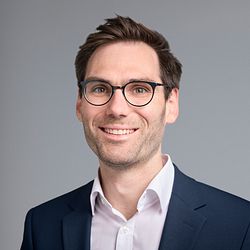
News -
Fraunhofer Monitoring: Germany Leading in an Uncertain Fuel Cell Market
At the conclusion of the H2Go project, the Fraunhofer ISI has published an updated monitoring report on the development of fuel cell technology in Germany. The analysis shows that, in international comparison, Germany remains one of the leading locations for research and development, particularly in the area of fuel cell technology patents. However, the report also highlights major uncertainties in market development as well as strong global market dynamics characteristic of an early-stage industry.
“The funding policies of recent decades have played a decisive role in making Germany one of today’s leading innovation locations for fuel cell technology,” explains project leader Henning Döscher. Funding has supported both basic research and industrial application development, resulting in strong links between science and industry. Since 1969, around 800 relevant projects have received funding amounting to several billion euros. Funding volumes have increased significantly, particularly since the 2000s. This has created a broad scientific foundation, reflected among other things in the number of patent applications. In this area, Germany ranks third worldwide, behind Japan and the United States. German stakeholders show strong activity particularly in polymer electrolyte and high-temperature fuel cells. Among the most active patent applicants are international corporations such as Toyota and Panasonic, as well as German companies including Bosch, Siemens and the Jülich Research Centre. The report also notes the prominent role of specialized medium-sized companies that position themselves in the global market with highly focused patent portfolios.
The monitoring also takes into account international market studies that identify significant uncertainties for the further development of the fuel cell market. Revenue estimates for 2023 range from USD 2 billion to USD 117 billion. “The wide range of market assessments illustrates that the fuel cell market is still in an early stage of development,” says Sven Altvater, research associate at Fraunhofer ISI. “Public funding measures, industrial policy strategies and technological breakthroughs will determine how quickly the market can grow and establish itself in the coming years.”

